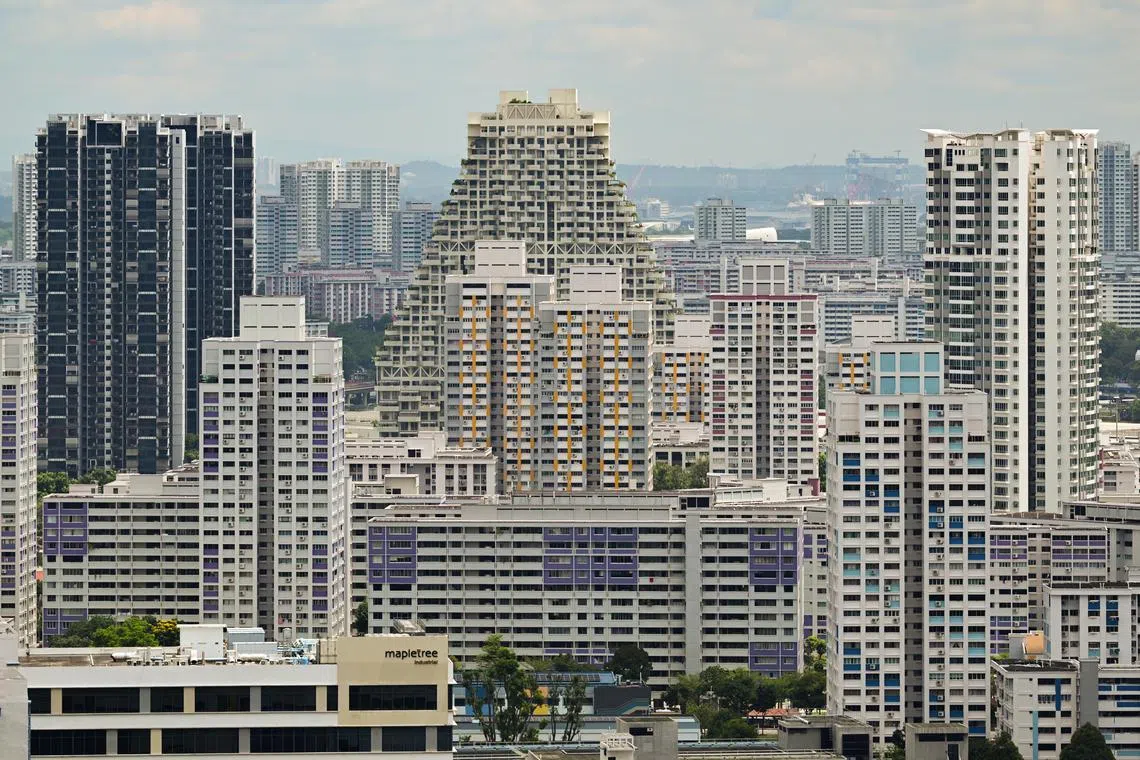Rents in Singapore narrow the gap with those in pricey Hong Kong
Sign up now: Get ST's newsletters delivered to your inbox

An acute supply crunch and an influx of wealth have pushed up rents, with locals turning to renting homes due to delays.
PHOTO: ST FILE
Follow topic:
SINGAPORE – Singapore is catching up with Hong Kong’s rental market as prices in the city-state are expected to soar on limited supply,
That is the view of analysts, who say that many factors impacting prices in the two places remain intact. Rents in Singapore could rise another 10 per cent to 15 per cent in 2023, while those in Hong Kong may post only a 5 per cent increase, according to Bloomberg Intelligence estimates.
Home rents in Hong Kong are predominantly more expensive when compared with those in Singapore. Yet with few signs of a rebound in the former, Singapore could continue to stand out in 2023 even with a slowdown in growth levels from the 30 per cent surge in 2022.
Rents in Singapore are “much closer to Hong Kong levels now”, said Mr Simon Smith, a senior director at Savills in Hong Kong. Given the limited luxury stock in Singapore to satisfy the demand, “the gap will narrow and there will be very little daylight between the two markets”.
Analysts are forecasting leasing values in Hong Kong to remain flat in the next few months, after 2022 saw rates in neighbourhoods popular with expatriates tumble.
Hong Kong has seen a decline in housing demand
“There is no major positive catalyst for rents in the first half,” said Mr James Fisher, chief operating officer at Spacious.hk.
However, returning expats and mainland Chinese could lift demand for Hong Kong rental homes later this year, he added.
In Singapore, an acute supply crunch and an influx of wealth have pushed up rents. Locals turned to renting homes due to pandemic-related construction delays, while a months-long wait-out period imposed on owners
“Competitive advantage is always relative, and Singapore’s status as a safe haven has been elevated by stringent Covid-19 measures in mainland China and Hong Kong (last year),” she added.
That said, Hong Kong is still expensive. The median rent for an 800 sq ft apartment in its Wan Chai area costs about US$5,200 (S$6,900) a month, 70 per cent pricier than one in Singapore’s District 9, which includes the Orchard Road area, according to data compiled by Bloomberg News.
A resumption of quarantine-free travel with China
“A lot is predicated on the speed with which the final restriction is lifted; how the border reopening plays out,” said Mr Smith.
“We still have the mask regulation here; we still have these issues we need to overcome before we can truly move on.” BLOOMBERG

